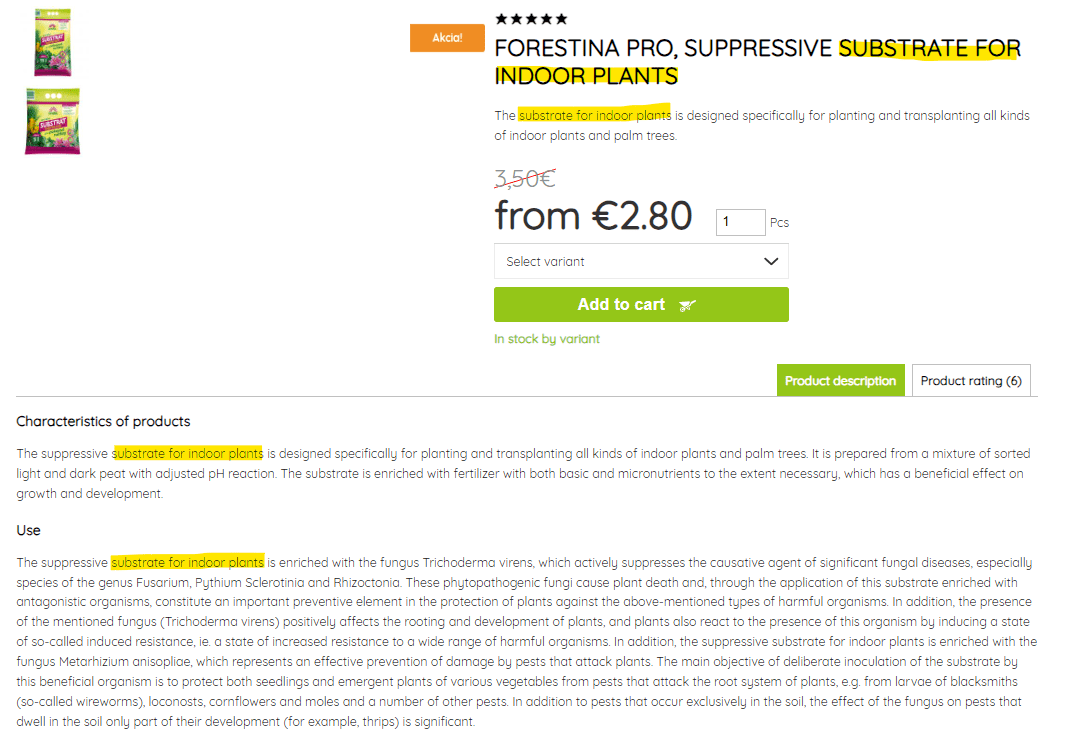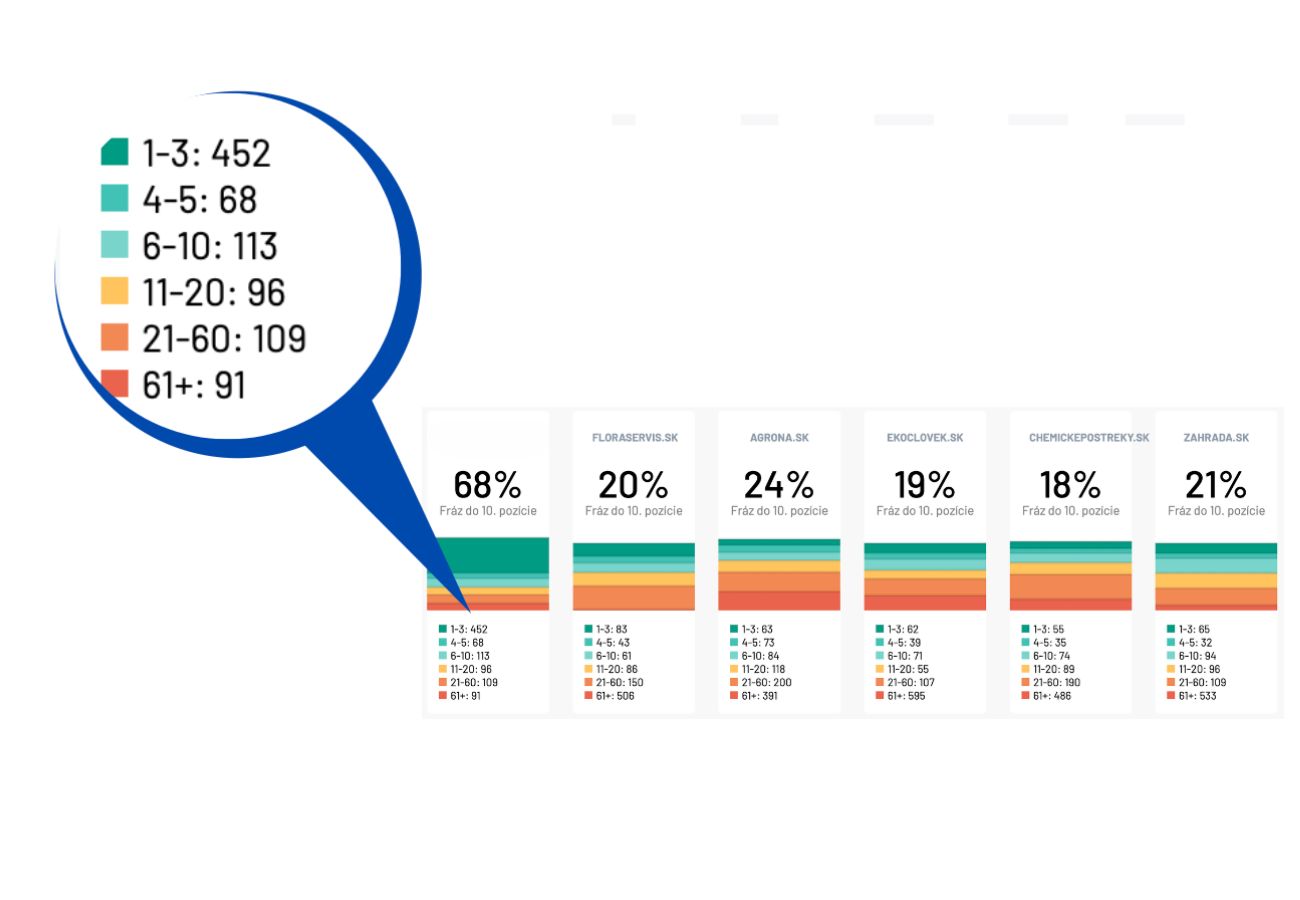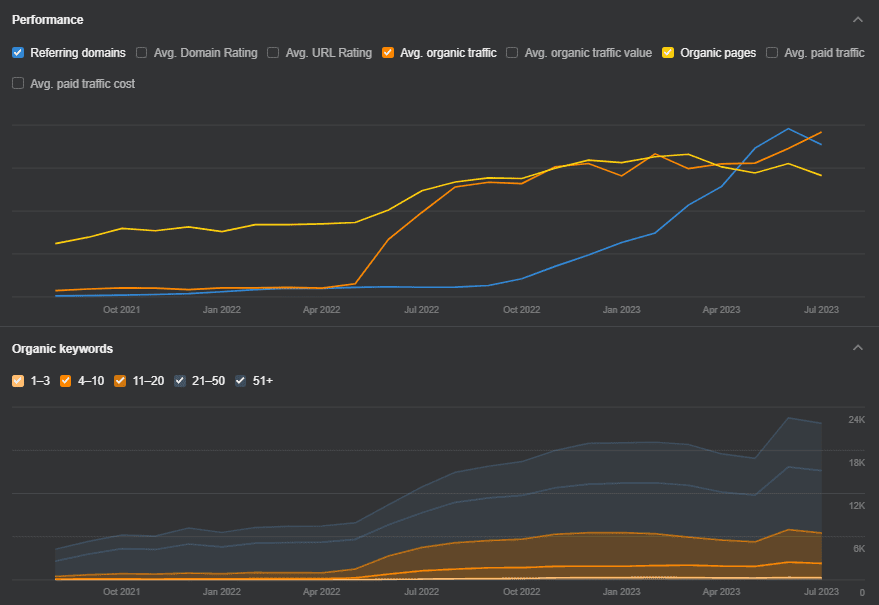More than 48% of website traffic comes from internet search engines, with social networks and customer reviews following closely behind.
This means that you receive a large percentage of your traffic directly from the search engine, either organically or through paid search engine advertising. If you don’t want to have to keep endlessly inflating your advertising budget, fire up your SEO (search engine optimisation).
Web optimisation needs keyword analysis
The first step to effective SEO is keyword analysis. You need to find relevant and popular keywords that mimic the buying behavior of customers (what they are looking for, what they are asking about, what questions they have, what they are worried about).
You can find keyword inspiration using your own ideas or Google, but also through freely available tools such as Google Keyword Planner or Collabim.
Next, organise the keywords in a table and don’t forget to include their search rate and cost per click so that you know how competitive they are.
The list of keywords is the base for the creation of any content. It is key when it comes to blogs and product information, but also highly relevant in descriptions of individual categories.
Remember that each keyword has a purpose
Remember that different keywords perform different tasks. In SEO terms, we call them intentions and we refer to three main ones:
- Informational intent (how to choose a laptop, the best books for children, how to make high-performance PPC ads). For keywords with informational intent, detailed guides and articles are the best fit.
- Commercial intent (Samsung television, white kitchen unit, PPC advertising) is best included in the description of categories, subcategories and products.
- Navigational intent (Alza returns, Gmail password reset, Dexfinity contact) includes pages that customers need but often can’t find.
Your SEO strategy should include keywords with all three objectives but remember that content that includes informational and commercial words has the highest conversions.
Filter out irrelevant and brand terms
If you sell luxury watches, you can immediately eliminate terms like cheap watches or cheapest watches.
When it comes to brands, remove words containing a brand that you do not sell or have no chance of shifting. This means that for an online store with electronics, it makes no sense to fight for the term Alza laptops. In both cases, you will find that paid advertising will work better for you.
Don’t leave out long-tail words
A long-tail keyword is a longer and more specific phrase. It tends to be extra important for online stores, as it usually converts better than shorter keywords. Searches for long-tail keywords sometimes exceed searches for short phrases.

On-page SEO: Optimising your content
If you have successfully completed your keyword analysis, you will be able to incorporate it into your website content. In the marketing world, we call all modifications on one’s own page in order to improve the position on-page SEO.
Normally, the most important steps for an online store are the optimisation of the large-scale structure of the website, the incorporation of key commercial purposes into the descriptions of products or categories, and the optimisation of images and reviews.
How to optimise product descriptions
A relevant product description includes:
- high-quality images in the required resolution,
- relevant keywords,
- product information that answers the buyer’s most pressing questions, such as price, technical description, delivery method,
- a clear CTA element (add to cart, set watchdog),
- ratings and other customers’ reviews.
TIP: Keep the images as small as possible without losing quality and add a description, title and alt tag to each one. Don’t forget to name the file using keywords before uploading it to the CMS system. If you need to reduce the image further, we recommend using the website tinyjpg.com.

The product has an unambiguous name that contains the keyword substrate for indoor plants. Furthermore, this word appears in several places in the description. The visitor sees a clear Add to cart CTA and they can also view the product ratings.
With the help of content creation for blogs and link building, the online store lacnepostreky.sk worked their way to the first three places in organic terms for 452 key phrases.

SEO Articles: Informative content must be credible
Blog content is one of the most important tools for SEO (search engine optimisation). By utilising high-quality texts and appropriate keywords with informative intent, you will:
- get the necessary traffic for the website, and
- strategically build your name as an expert in your field.
A well-designed, optimised online store with high-quality content marketing gains higher positions in Internet searches. Provided you sell relevant products at reasonable prices, more traffic will come hand-in-hand with more sales.
By creating content, you are building your reputation and expertise. If you focus on quality, the Google algorithm will reward you.
The online store can:
- publish instructions, advice and tips,
- answer frequently asked questions,
- inform about new products,
- share behind-the-scenes views of the company’s operation,
- create a dictionary of terms (for example, an online store with indoor plants),
- publish reviews,
- share video instructions, and more.
A/B test your article headlines and cover all stages of the buying cycle with your content.
Our experience with professional content
In the demanding segment of online pharmacies, we managed to increase visibility in organic search five-fold thanks to adjustments in technical SEO and the creation of quality content.
Your Money Your Life
Expert medical content falls under the YMYL (Your Money, Your Life) content category. This means that the content that’s published has a great impact on the searcher. In this category, we had to place emphasis on sources and expertise.
We drew up a content plan and entrusted the articles to a copywriter with an educational background in the pharmaceutical field. For each text, we precisely defined the scope, structure of the article, keywords and the depth of the topic. After only 4 months of co-operation, the client gained increased keyword coverage and achieved leading positions in a highly competitive environment.

SERP is the new On-page
Once you have covered the most important content and included texts with a commercial purpose, link building and digital PR come to the fore, which online stores can often underestimate.
Pay heed to building backlinks. This allows Google to know that your website has authority and credibility. The quality of backlinks also affects the position in organic searches.
Naturally, e-shoppers tend to direct all their activity to their own website. However, this is not the correct approach. Before people decide to buy, they will click through many websites and simply seeing yours will not be enough. Thanks to external links, you can easily send them where you want them to go.
Web Optimisation – SEO that gets results
Do you want your products or services to appear first in the search results? Are you planning to make changes in SEO, but worried about a drop in rankings?
Get in touch and together we will find a solution to make your online store visible to both bots and people.






